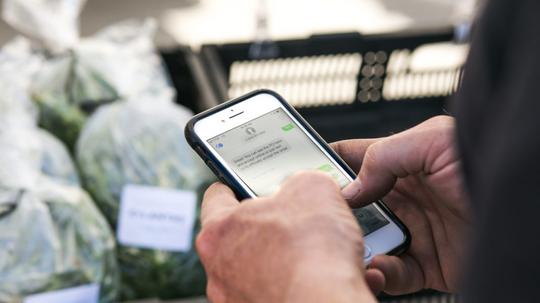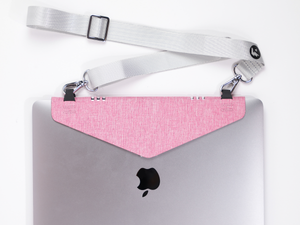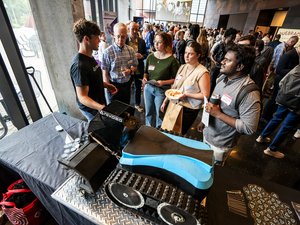
While farm-to-fork restaurants and local food sections at grocery stores have become ubiquitous, a little-discussed challenge persists: How to get food from the farm to your fork in predictable, efficient ways. The problem is most perplexing when working with small farms, even when they’re in the same city as the restaurant or grocery store they’re hoping to sell to.
“Big grocery chains, wholesale buyers, distributors — they’re struggling with, ‘How do I deal with this different kind of small producer,’” said Sam Eder, CEO of Big Wheelbarrow, one of nine participants in Techstars’ first Farm to Fork Accelerator. “That’s where we focused our business.”
Started in Austin at the start of 2017, Big Wheelbarrow connects buyers and producers using software that automates conversations about what the farmer has, what the buyer needs, whether it’s on track or if the latest storm will affect an order, and other tedious transactional details that can eat up time when a buyer is working with more than one producer.
Big Wheelbarrow works mostly with farms in or near urban areas, from small “backyard operations” to those growing on 50 acres.
“They’re the biggest pain point,” Eder said. “They’re the ones who face this glass ceiling of being able to work with wholesale buyers.”
A restaurant owner who sources from a single farm only has one call to make to find out what’s coming that week. But many restaurants would need to source from many more farms, losing valuable time and energy keeping track of inventory.
“We’re passionate about the small producer because they are the producers that represent agriculture activity in and around cities,” Eder said. “They’re the ones getting pushed out of cities.”
Working in the same space as RangeMe or BlueCart, Big Wheelbarrow is trying to improve supply management system technology. The company has gone through a couple of iterations and now has its eyes set on launching a national product, Eder said. With help from new mentors at Farm to Fork, Eder and his partners are looking to expand their knowledge to make the jump from a single city to a national scale.
“A lot of people have tried to solve this problem,” Eder said. Often, the effort includes getting farmers to use new apps or other software. But it doesn’t catch on. “At the end of the day, they still sent me emails and texts instead of entering information.”
“If we wanted to really make a difference, we couldn’t change the farmer.”
Instead, Big Wheelbarrow uses tech that takes texts or emails – “unstructured communication,” Eder calls it — and pulls it all into a system where buyers can see everything from every supplier at once.
“We believe at our core that the power of tech isn’t to change how farmers work or how buyers buy, but to create efficiencies to make them happen easier and help improve margins on either side,” he said.
Eder and his wife moved to Minneapolis last year. When his wife was looking for places to apply for her medical residency, the Twin Cities was high on the list of fast-growing regions with the kind of food reputation and vibrant startup culture that he thought could support Big Wheelbarrow.
He said Twin Cities food startups, including Local Crate, a subscription meal service, and The Good Acre, a food hub focused on connecting growers to new markets, seem excited to welcome Big Wheelbarrow.
“We’re small,” Eder said. Big Wheelbarrow has just four . “We need to be surrounded by people that are creative, thinking about problems … without that pool around us, we’re on an island.”








